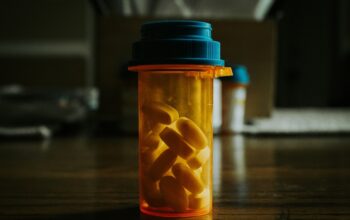
In the post, “An Inspirational Tale For Parents Of Children Diagnosed With Bipolar Disorder,” I talked about the day my daughter was diagnosed as having bipolar disorder, and the long road we have since traveled. Here, in Part Two, I will talk about important lessons learned that you need to know as the parent of a bipolar child.
Therapists can be extremely helpful when good, or harmful when bad.
I had found my daughter’s diagnosis of bipolar disorder so difficult to accept, in part because she had already been seeing a therapist for two years. The only diagnosis he ever made was “anxiety.”
Counselors at my daughter’s Middle School highly recommended this therapist. However, true to this therapist’s arrogant nature, he talked to my daughter about herbal treatment without consulting me. At the time, my daughter was 12. He convinced her that St. John’s Wort, a “natural” remedy, would help her feel better. So, of course, she was adamant about wanting to try it.
I grudgingly gave my approval, never suspecting it could do any harm. In fact, a good friend had recently told me St. John’s Wort helped her with mild depression due to approaching menopause.
St. John’s Wort Is Extremely Dangerous for People Diagnosed as Having Bipolar Disorder
Pictured above is the St. John’s Wort plant.
Not surprisingly, the therapist sold this herbal remedy. My daughter said the drops tasted awful. Shortly afterward, her behavior changed. She became extremely animated and funny, and laughed a lot. But she had always been entertaining and imaginative, so I thought little of it at the time. After about a week, I noticed she started having brief episodes of intense sadness mixed in with animation. (By brief episode, I mean possibly half an hour or so.) She would go from being happy and animated, to sad and worried, and then back to happy again. I wasn’t sure what was going on, but I was thankful that her appointment with a new psychiatrist was coming up soon.
There is a tremendous shortage of good child psychiatrists in our country
We never would have been able to get this coveted appointment with the child psychiatrist on our own. My daughter was at her pediatrician’s office, and the doctor could tell she was depressed. (The doctor always made a point of talking to her young patients in depth—a truly dedicated and rare doctor specializing in adolescent girls.) The pediatrician told us she knew an excellent child and adolescent psychiatrist who owed her a professional favor. Right there in front of us, she called the psychiatrist and set up the appointment for the following week. I was so thankful because I had been trying to get my daughter an appointment to see a psychiatrist for weeks—but appointments with recommended child psychiatrists were impossible to get.
If you feel your child needs to see a psychiatrist, leave no stone unturned.
Use every resource possible to find a good child psychiatrist. Be persistent and do your research.
On the long-awaited day of the appointment, the psychiatrist first met with my daughter for an hour, then she met with me for an hour, and then she met with both of us. The psychiatrist diagnosed my daughter as having bipolar disorder. She wanted her to start medicine immediately. But I wanted to wait.
As told in Part 1 of this post, the following day I called my daughter’s long-standing therapist, thinking he would share my shock and disapproval over my daughter’s new diagnosis. No one in either my or my husband’s family was diagnosed with bipolar disorder. It didn’t make sense. But when I told him the “shocking” diagnosis, he only mumbled, “I thought she might be bipolar. I hoped I could treat her differently.” But when pressed for a better explanation, he said, “I knew if I told you the diagnosis, that you would want her to see a psychiatrist.”
Had my Mama Bear tendencies been as highly developed as they are now, I probably would have literally reached through the phone and ripped the tongue right out of his mouth . . . for starters. (Yes, I know what literally means. I would have made it happen somehow.) But I was so taken off-guard, and so disgusted, I just got off the phone without further discussion.
This worthless and dangerous therapist had been keeping the bipolar diagnosis under wraps so he would not lose a patient.
Finally On the Right Road
I immediately called my daughter’s new psychiatrist and told her I wanted my daughter to begin treatment. Unfortunately, my daughter could not start on the new medicine until we gave ample time to get the St. John’s Wort out of her system. The psychiatrist told me that they knew this herbal supplement was a trigger for mania in patients with bipolar disorder. Why her therapist ever gave this to her, thinking – or knowing—she suffered with bipolar disorder, remains a big question that will never be answered.
I also learned from the psychiatrist that the unusual behavior that my daughter had been exhibiting had a name: “rapid cycling.” Rapid cycling is a change of moods from depressed to elevated, and in children can occur with great rapidity. In fact, many children with bipolar disorder can cycle so rapidly that they experience alternating moods many times in a single day. The psychiatrist said she had seen my daughter rapid cycle during their meeting, and that was one reason she was so sure of her diagnosis. If you observe your child having this behavior consistently, have your child evaluated by a mental health professional. The combination of rapidly alternating depression and mania can leave the child in a vulnerable and elevated state of potential self-harm.
St. John’s Wort Can Be Dangerous
St. John’s Wort must be avoided at all costs if you or your child has been diagnosed as having bipolar disorder. Also, children with bipolar disorder may attempt suicide due to an anti-depressant they are taking. Be vigilant and contact your child’s doctor with any concerns you have. Medicines affect different people differently. This is especially true with children/teens/young adults taking anti-depressants.
I am not saying your child shouldn’t take medicines prescribed by their doctor. I am saying, ask questions of your child’s doctor and have them explain to you potential warning signals to look out for. Then be vigilant.
Now, back to my daughter’s worthless therapist.
Yes, the temptation to sue the therapist was great. How long had my daughter needlessly suffered and missed appropriate treatment, due to his selfishness and greed? But we focused our efforts instead on helping our daughter get to a place where she could move forward with her life and be happy and productive. And she did. She recently graduated with a MA in Clinical Mental Health Studies and now helps others.
Being diagnosed with bipolar disorder does not need to limit your child. Remember this always—especially in the tough times.
I hope you have benefited from this information. If you know a parent whose child has been diagnosed with bipolar disorder, I hope you will share this blog post with them.
Read about the start of the journey — Is You Child Diagnosed as Having Bipolar Disorder – Part 1.


